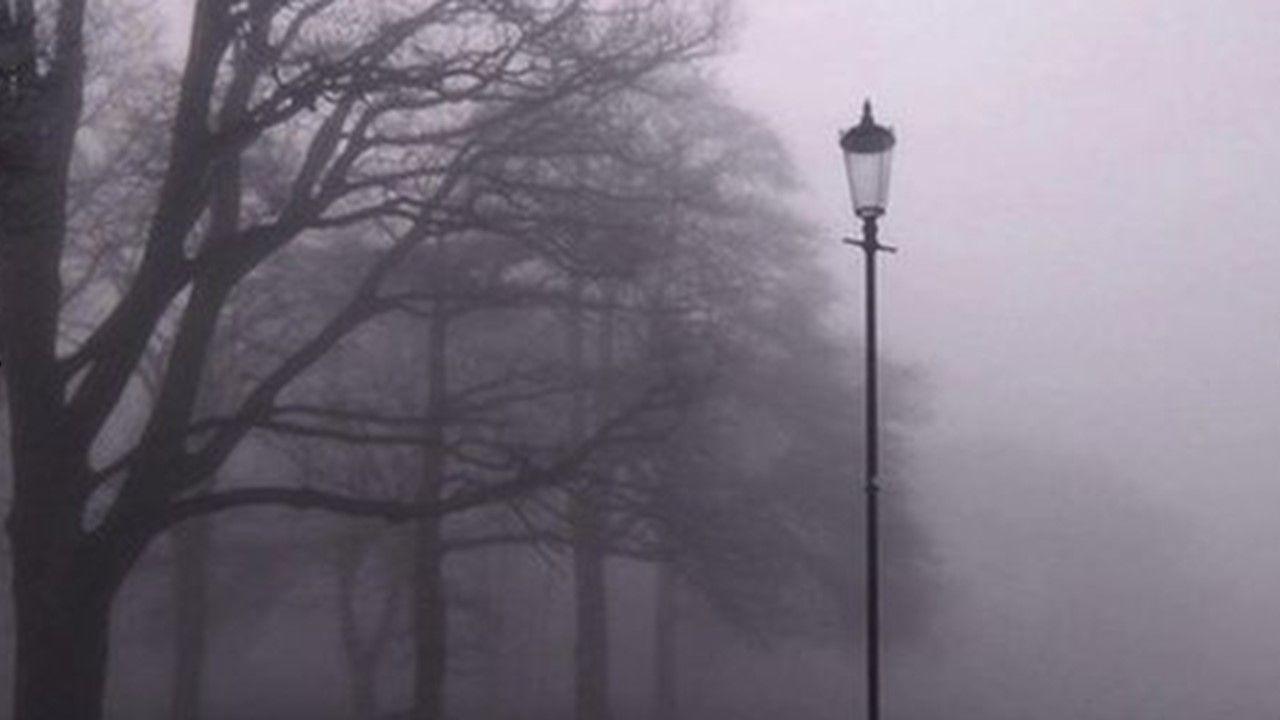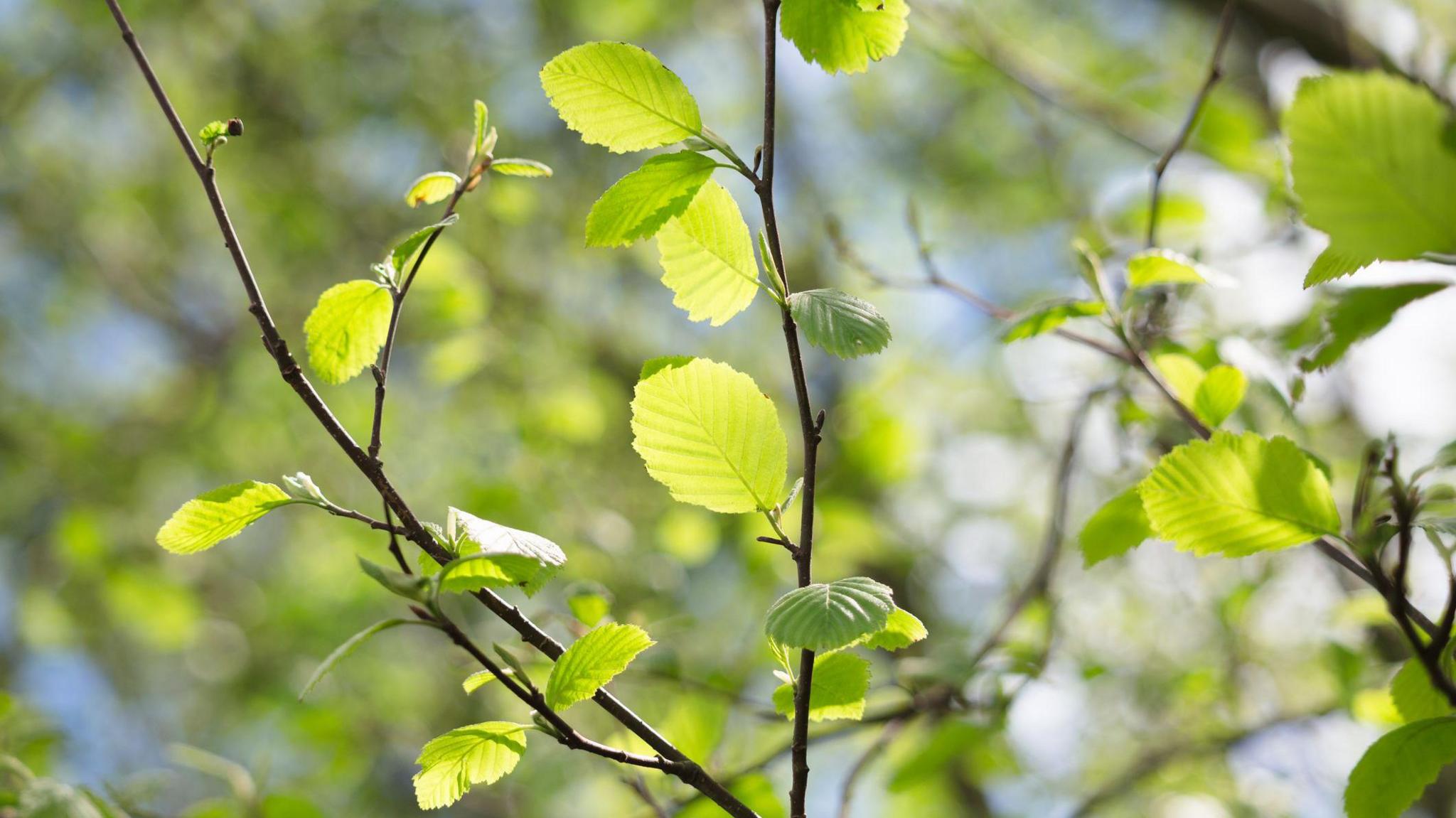Meteorological spring starts with sunshine in the forecast

- Published
The start of March marks the beginning of spring - at least as far as weather forecasters are concerned.
It will sometimes feel like spring has sprung this week thanks to some relatively warm sunshine, albeit with a little rain at times in the north and west.
The nights may still feel more like winter though, with some frost and fog.
Actually, there are differences in opinion over when exactly winter ends with some people preferring to look at astronomical spring rather than meteorological spring.
What is meteorological spring?
Weather forecasters talk about the start of spring as 1 March.
In meteorology, the seasons are grouped into three months - giving a fixed time frame for consistent measurements and comparisons.
For spring, that is March, April and May.
Therefore, spring ends on 31 May before the summer months of June, July and August.
This is unlike astronomical spring where the date will change slightly each year due to the orbit of Earth around the Sun.
What is the Equinox?
When does astronomical spring begin?
In 2025, it will be 20 March.
This is the date of the spring equinox which is determined by the Earth's tilt as it travels around the Sun.
On the equinox, the Sun crosses the equator, making day and night nearly equal in length.
The word "equinox" comes from Latin, where equi means "equal" and nox means "night." Beyond the equinox, days will be longer than nights.
Astronomically, spring ends on 21 June, at the summer solstice.
What about phenological spring?
You may also want to consider phenology - the behaviour of plants and animals in response to the changing weather and climate - as another marker for the start of spring.
For those who follow nature, dates for the start of phenological spring are highly variable due to the weather conditions and species.
Frogspawn, for example, may appear in late February whereas bluebells sometimes appear in early April.
But climate change is also having an impact on these dates. Data gathered by a citizen science project with the Woodland Trust, external shows that since 2000 - amongst other species - frogspawn and bluebells are appearing earlier.
When do the clocks go forward?
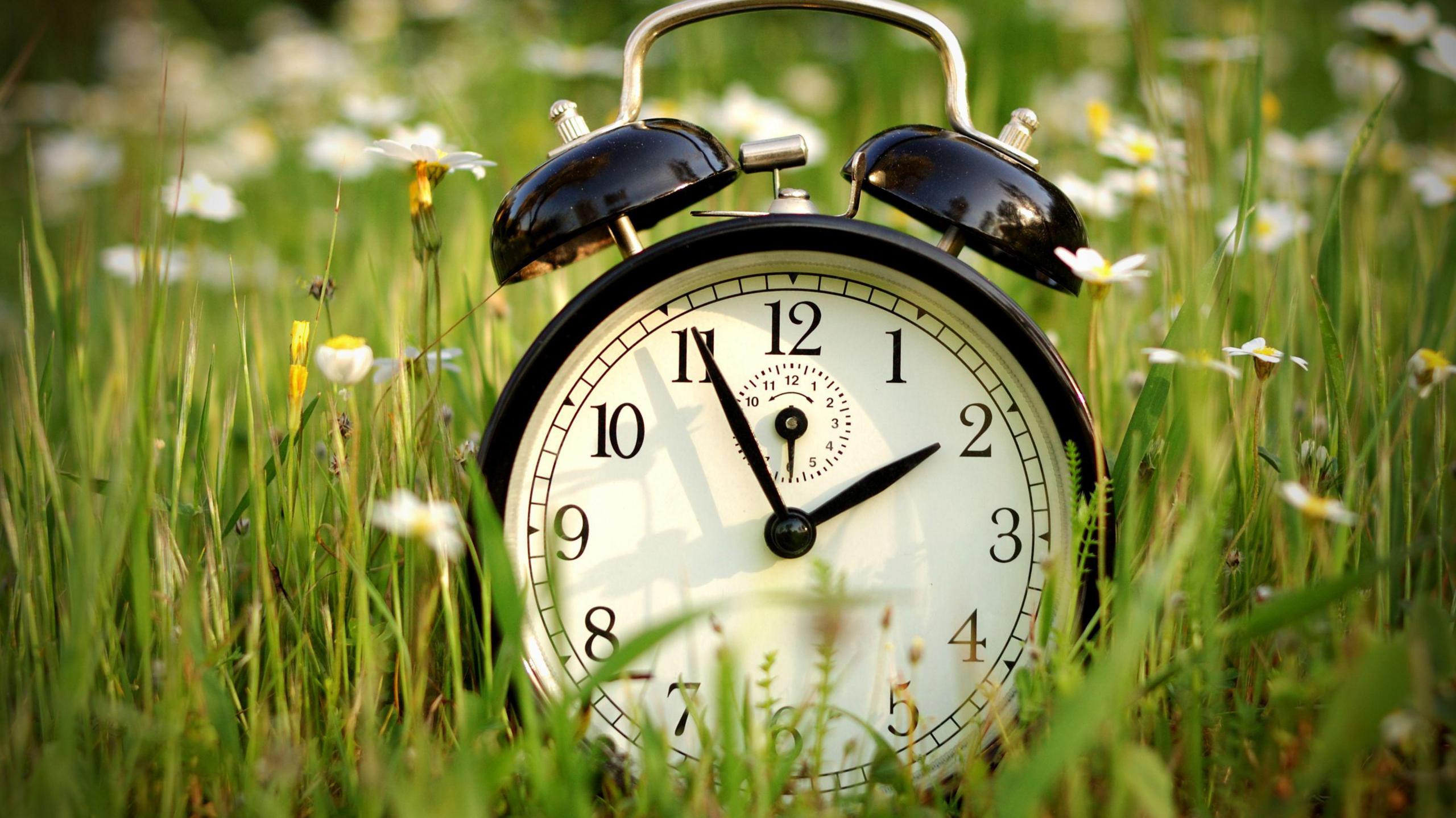
Clocks will 'spring forward' to British Summer Time (BST)
Clocks change from Greenwich Mean Time (GMT) to British Summer Time (BST) in the early hours of 30 March.
If you're familiar with the phrase, the clocks will 'spring forward' by an hour meaning we 'lose' an hour from that day.
But after this our evenings will become significantly lighter.
Clocks go forward in the summer for 'daylight saving' - an idea first introduced in 1907 by William Willett, a British builder who noticed people were sleeping through the daylight on summer mornings.
He proposed shifting the clocks forward to help everyone make better use of the daylight and the 'Summer Time Act' was passed by Parliament in 1916.
Is the weather getting more spring-like?
The forecast for the beginning of March does, in many ways, look quite spring-like with high pressure centred across the south of the UK for much of the week ahead.
This will lead to some long sunny spells.
Frontal systems will move into northern areas at times giving more cloud and some outbreaks of rain, particularly in north-west Scotland.
West or south-westerly winds will bring mild air and daytime highs potentially reaching 14-15C.
Some nights will still be fairly cold though with the risk of frost and fog where skies remain clear - a reminder than spring weather can be fickle and winter is not far behind us.
You can always check your latest forecast with BBC Weather online and on the app.
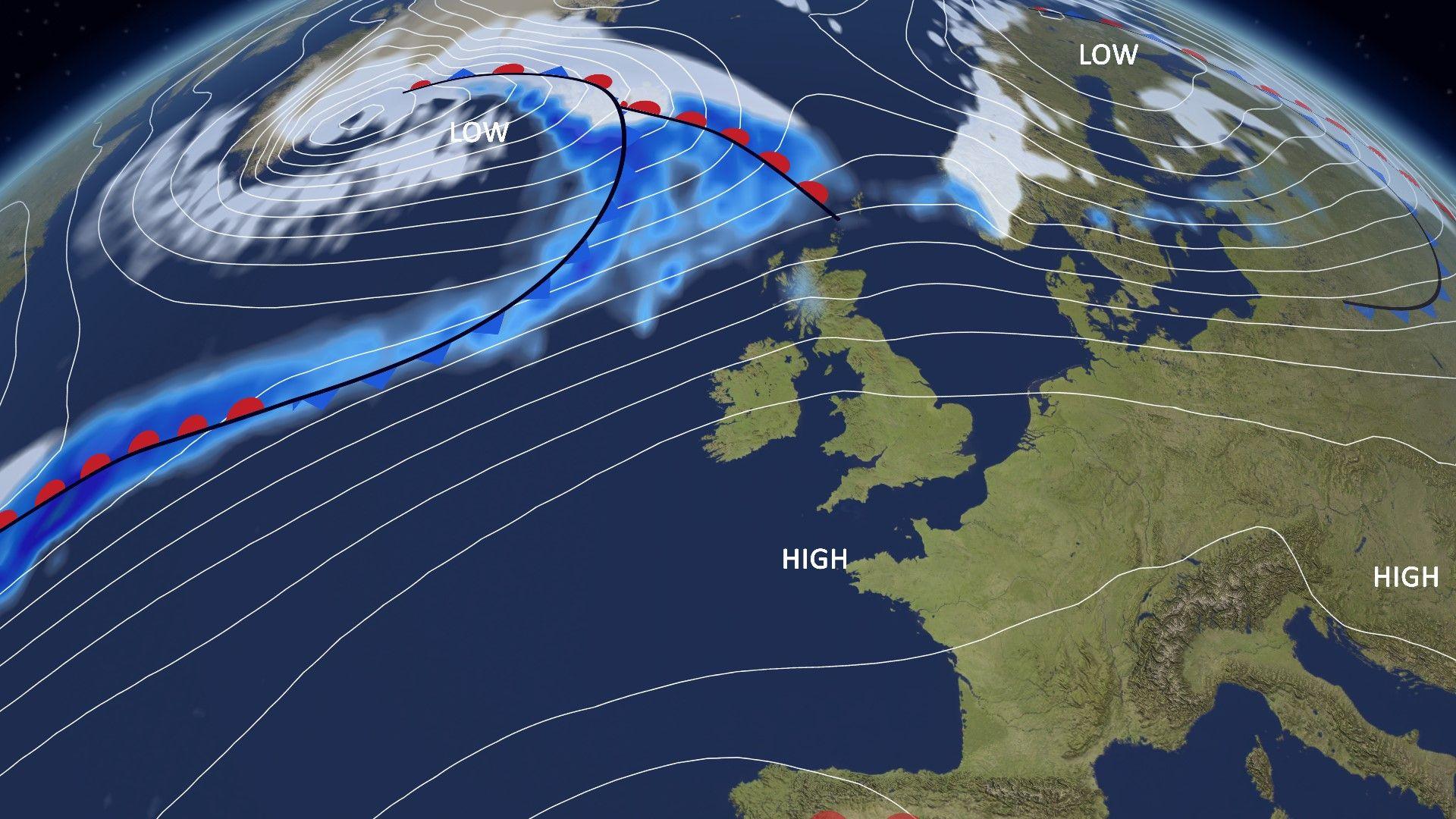
The south of the UK will see the driest and brightest weather as high pressure dominates
As meteorological winter ends we can begin to crunch the numbers to see what the season was like weather-wise.
Early statistics from the Met Office suggest that it was a milder and drier-than-average overall - although there were big variations across different parts of the country.
- Published28 February 2021
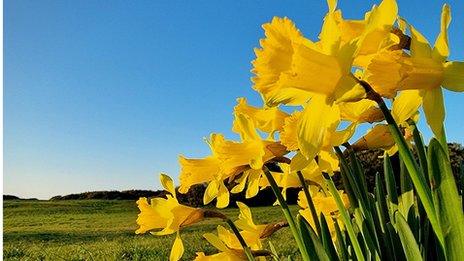
- Published15 January
